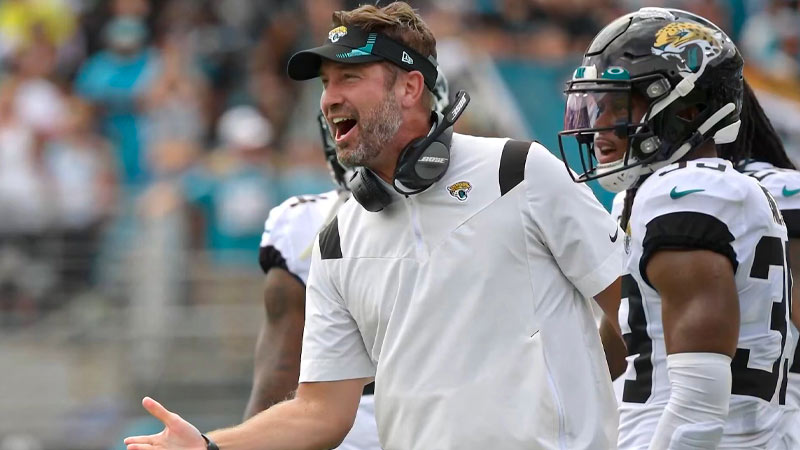In the complex and highly strategic world of American football, the role of the offensive coordinator stands as a linchpin in a team’s quest for success. This position is instrumental in shaping a team’s offensive game plan, play-calling, player development, and in-game adaptability.
The offensive coordinator is the architect behind each meticulously crafted offensive strategy, creating a playbook designed to outmaneuver opposing defenses and score points.
Their ability to make real-time adjustments during games, mentor and develop players, and meticulously prepare for upcoming opponents directly influences the team’s performance on the field.
This essay delves into the significance of the offensive coordinator’s role and how it influences a team’s overall success in the realm of American football.
What Does an Offensive Coordinator Do in Football?
An offensive coordinator in football is responsible for crafting and implementing the team’s offensive strategy. They design plays, manage the offensive playbook, and call plays during games.
Additionally, they develop players, ensure efficient practice sessions, and adapt strategies to exploit opponent weaknesses. Their leadership and play-calling directly impact the team’s offensive performance, with the ultimate goal of scoring points and securing victories.
The offensive coordinator’s multifaceted role is essential for a team’s offensive success in the highly competitive world of football.
How Important is the Offensive Coordinator?
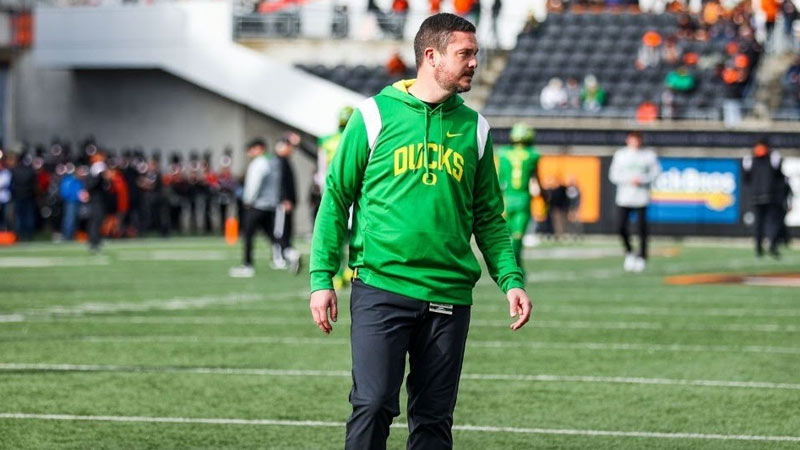
The importance of an offensive coordinator in football cannot be overstated. This role is a linchpin in the success of a team’s offensive performance and, by extension, its overall competitiveness in the sport.
Here’s why the offensive coordinator is so crucial:
Game Strategy
The offensive coordinator is responsible for designing and implementing the team’s game plan on the offensive side of the ball. This plan outlines how the team intends to move the ball, score points, and exploit the weaknesses of the opposing defense. Without a well-thought-out strategy, a team is likely to struggle.
Play Design
They are the architects of the team’s playbook, which consists of a wide array of plays for different game situations. These plays must be creative, effective, and tailored to the strengths and weaknesses of the team’s players. Play design keeps the offense unpredictable and dynamic.
Play Calling
During actual games, the offensive coordinator is often the one calling the plays. This involves analyzing the game situation, field position, and opponent tendencies in real-time. Their play-calling decisions directly impact the success of each offensive drive.
Player Development
Successful offensive coordinators work closely with individual players to help them understand their roles within the offensive system and improve their skills. This coaching and mentorship contribute to the development of well-rounded and highly skilled athletes.
In-Game Adaptation
Football is a dynamic sport, and game situations can change rapidly. The offensive coordinator must adapt to evolving conditions, making real-time adjustments to exploit defensive weaknesses or react to unexpected events.
Scouting and Preparation
They engage in meticulous analysis of upcoming opponents, studying game film and data to identify the strengths and weaknesses of the opposing defense. This information is then used to craft effective game plans and strategies.
Efficiency and Coordination
Coordinating the efforts of various players and positions within the offensive unit is a key responsibility. Ensuring that everyone is working together efficiently is vital for the success of the team.
Leadership and Team Building
Effective offensive coordinators are not just tacticians; they are leaders. They motivate players, build their confidence, and foster a sense of unity within the offensive unit, which is crucial for team morale and success.
Team Success
The performance of the offense often plays a significant role in determining a team’s overall success. While the head coach has ultimate responsibility for the team’s performance, the offensive coordinator’s influence on the offensive side of the game is critical.
What Makes a Good Offensive Coordinator?
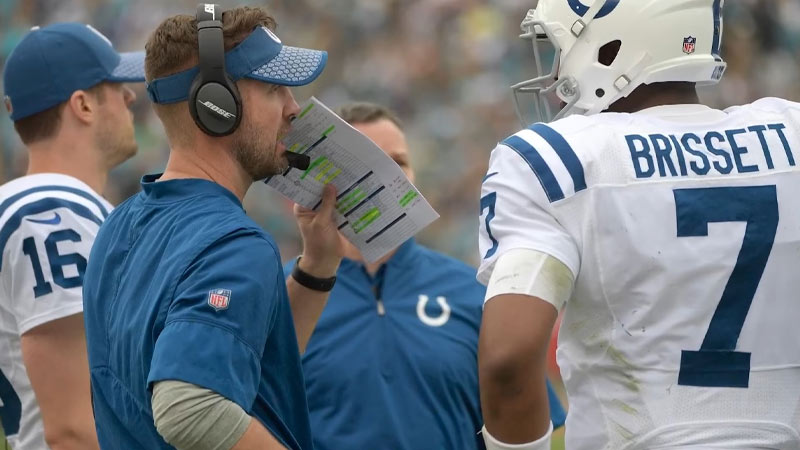
A good offensive coordinator in the world of American football is not just a tactician; they are visionaries, leaders, and educators. Their role is pivotal in shaping a team’s offensive success. What sets a good offensive coordinator apart are the skills, knowledge, and qualities that they bring to the role.
Here’s a closer look at what makes a good offensive coordinator:
Strategic Acumen
A good offensive coordinator possesses a deep understanding of the game’s strategic nuances. They can see the bigger picture and develop a comprehensive game plan that guides the team’s offensive approach.
This plan must take into account various game scenarios and opposition strengths and weaknesses.
Football Knowledge
In-depth knowledge of football, encompassing both offensive and defensive strategies, rules, and evolving trends, is essential. Staying updated with the latest developments in the sport is vital.
Adaptability
Football is dynamic, and games can change in an instant. A good coordinator must be adept at adapting to shifting circumstances. This includes making real-time adjustments during games to exploit defensive vulnerabilities.
Creativity
Good coordinators are innovative in their approach. They design plays and offensive schemes that keep the offense unpredictable and challenging for opposing defenses.
Effective Communication
Clear, concise communication is a must. The ability to convey complex game plans, play calls, and feedback to players and coaching staff is crucial.
Leadership
Successful coordinators are not just tacticians; they are leaders. They motivate players, build their confidence, and foster a sense of unity within the offensive unit.
Player Development
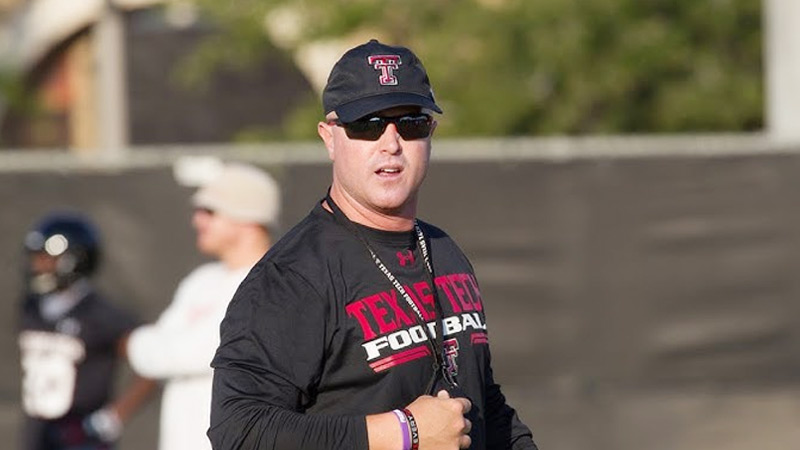
Good coordinators work closely with players, helping them understand their roles within the system and improve their skills. Effective coaching and mentorship are vital for player development.
Analytical Skills
Studying game film, opponent data, and player performance statistics is a routine part of the job. Good coordinators have the ability to interpret and apply this data to create effective strategies.
Emotional Control
Football can be an emotional sport, and it’s important for a coordinator to remain composed under pressure, especially during critical moments in games.
Commitment to Improvement
Good coordinators are dedicated to their own growth and the development of the team. They continually seek ways to improve and stay current with the latest football strategies and coaching techniques.
Collaboration
Effective coordinators work well with other coaches, including the head coach, position coaches, and defensive coordinators, to ensure the team operates cohesively.
Situational Awareness
Understanding the context of a game, such as down and distance, time remaining, and field position, is crucial for making appropriate play calls.
Consistency
Good coordinators maintain a consistent coaching approach and play-calling strategy. Players thrive when they have a reliable and steady leader.
Result-Oriented
Ultimately, the success of an offensive coordinator is measured by results on the field, meaning scoring points and winning games.
Who Are Some of the Most Successful Offensive Coordinators in Football History?
Several offensive coordinators in football history have left a significant mark on the game and achieved remarkable success.
Here are some of the most successful offensive coordinators:
Bill Walsh
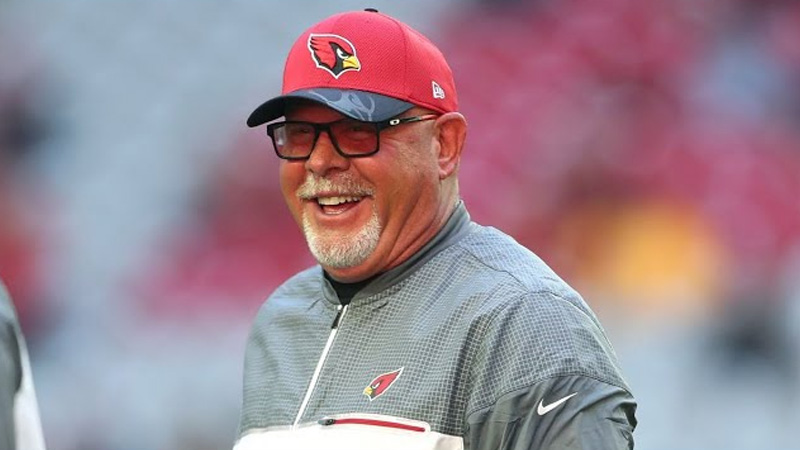
Bill Walsh is often regarded as one of the most influential offensive minds in NFL history. He was the architect of the “West Coast Offense” and served as the offensive coordinator for the Cincinnati Bengals before becoming the head coach of the San Francisco 49ers, where he won multiple Super Bowls.
Don Coryell
Known for his innovative “Air Coryell” offense, Coryell was an influential offensive coordinator in the NFL. He had successful stints with the St. Louis Cardinals and the San Diego Chargers.
Joe Gibbs
Before becoming a Super Bowl-winning head coach with the Washington Football Team, Gibbs served as an offensive coordinator. His “counter trey” running play was particularly effective, and he was known for his strategic expertise.
Ernie Zampese
Zampese was a highly successful offensive coordinator, known for his work with the San Diego Chargers and the Dallas Cowboys. His “digit system” was a revolutionary approach to passing offenses.
Mike Martz
Martz had a successful tenure as the offensive coordinator for the St. Louis Rams, where he helped engineer the high-scoring “Greatest Show on Turf” offense that won a Super Bowl.
Josh McDaniels
As a coordinator for the New England Patriots, McDaniels has been instrumental in developing innovative offensive strategies and working with star quarterbacks like Tom Brady.
Kyle Shanahan
Kyle Shanahan, the son of legendary coach Mike Shanahan, is known for his creative offensive schemes. He has been a successful offensive coordinator with the Atlanta Falcons and the San Francisco 49ers.
Darrell Bevell
Bevell has worked as an offensive coordinator for several NFL teams and was part of the coaching staff that helped the Seattle Seahawks win a Super Bowl.
Norv Turner
Turner has had a long and successful career as an offensive coordinator in the NFL, with stints at multiple teams. His expertise in designing offenses has contributed to the success of several teams.
Scott Linehan
Linehan has worked as an offensive coordinator with multiple NFL teams, and his strategic approach to play-calling has been an asset to various offenses.
FAQs
Does an NFL team need an offensive coordinator?
Yes, an NFL team typically needs an offensive coordinator for strategic game planning, play-calling, player development, and to maximize offensive performance.
What is the role of an offensive coordinator in football?
An offensive coordinator in football designs and calls offensive plays, develops players, strategizes against opponents, and leads the team’s offensive performance to score points and win games.
What Are the Key Responsibilities of an Offensive Coordinator?
Key responsibilities of an offensive coordinator in football include strategic planning, play design, play-calling, player development, adaptation, scouting, efficiency, leadership, and team building.
Why is the Offensive Coordinator Important for a Team’s Overall Success?
The offensive coordinator’s role in game strategy, play design, and leadership significantly impacts a team’s ability to score points, win games, and achieve overall success in football.
What’s the Difference Between Offensive and Defensive Coordinators in Football?
Offensive coordinators focus on designing and executing the team’s offensive strategy, while defensive coordinators are responsible for the defensive strategy to counter the opposing team’s offense.
To Recap
In the realm of American football, the offensive coordinator’s significance is undeniable. Their strategic brilliance, leadership, and adaptability shape a team’s offensive prowess, affecting not only individual games but the entire season’s outcome.
As we’ve explored in this discussion, they are the architects of innovative offensive strategies, play-calling wizards, and mentors to players, fostering their growth and maximizing their potential.
The importance of an offensive coordinator transcends mere game plans; it’s the backbone of a team’s ability to outsmart opponents, secure victories, and ultimately achieve success.
Just as a conductor orchestrates a symphony, the offensive coordinator conducts a harmonious offense that resonates with victories, making their role an indispensable element of football’s rich and complex tapestry.

